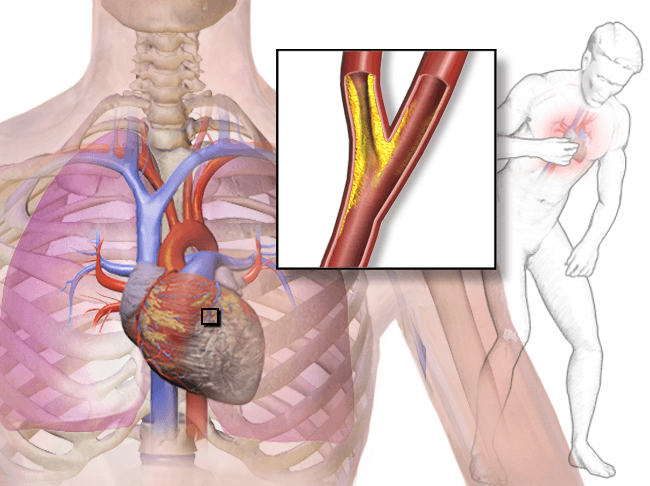Angina is a condition marked by severe pain in the chest, often also spreading to the shoulders, arms, and neck, caused by an inadequate blood supply to the heart.

Angina
Risk Factors
- Smoking Tobacco
- Diabetes
- High Blood Pressure
- High Cholesterol
- Family History of Heart Disease
- Men who are 45 years and older
- women who are 55 years and older
- Lack of Exercise
- Obesity
- Stress
Angina Symptoms Include:
- Chest pain or discomfort, possibly described as pressure, squeezing, burning or fullness
- Pain in your arms, neck, jaw, shoulder or back accompanying chest pain
- Nausea
- Fatigue
- Shortness of breath
- Sweating
- Dizziness
When to see a doctor
If your chest pain lasts longer than a few minutes and doesn’t go away when you rest or take your angina medications, it may be a sign you’re having a heart attack. Call 911 or emergency medical help. Arrange for transportation. Only drive yourself to the hospital as a last resort.
Diagnoses
- EKG
- Stress Test
- Echocardiogram
- Nuclear Stress Test
- Chest X-ray
- Blood tests
- Coronary Angiography
- CT Scan
- Cardiac MRI
Medical procedures and Surgery
- Stenting
- Coronary Artery bypass surgery.

